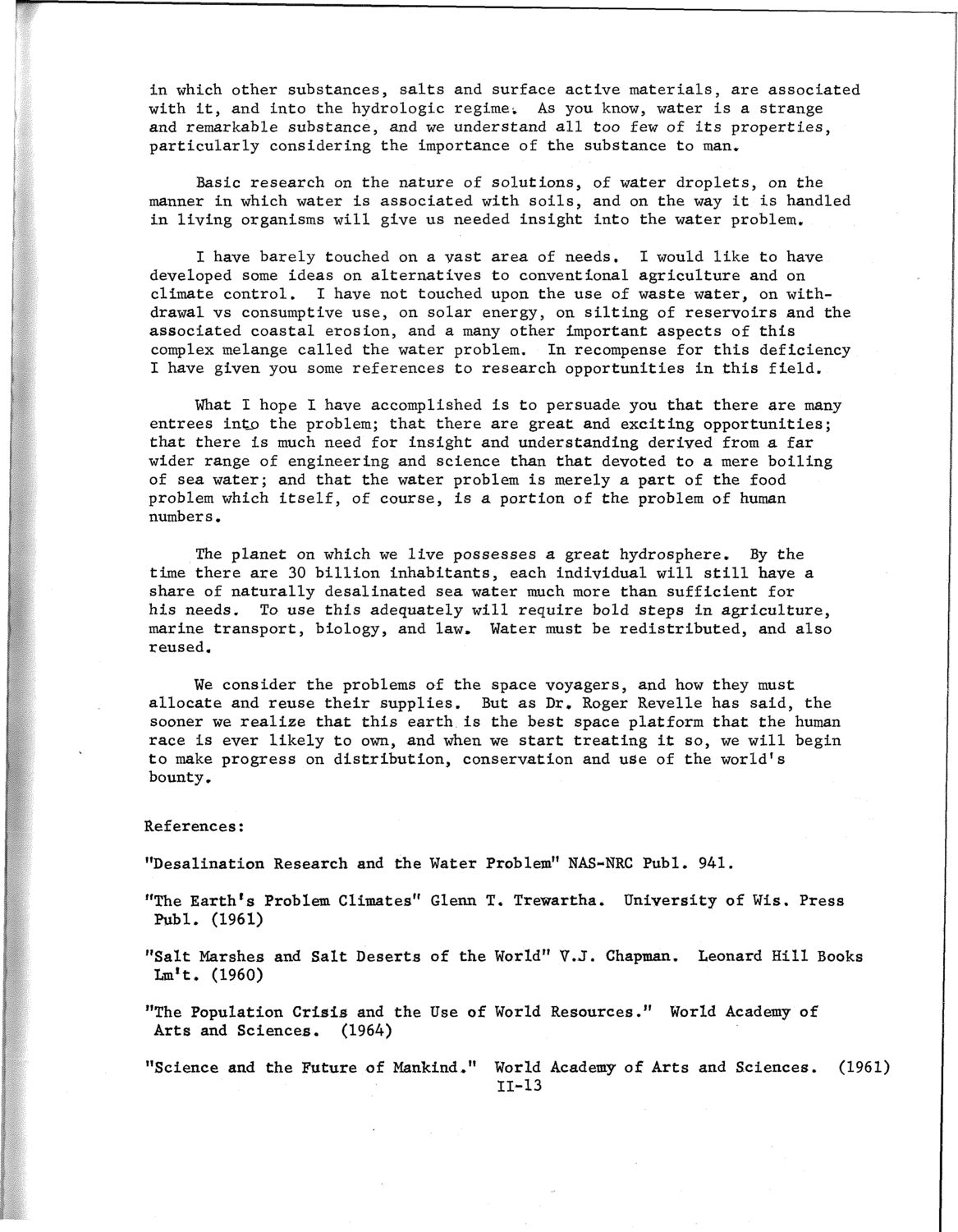| |
| |
Caption: SWE - Proceedings of the First International Conference of Women Engineers and Scientists
This is a reduced-resolution page image for fast online browsing.

EXTRACTED TEXT FROM PAGE:
in which other substances, salts and surface active materials, are associated with it, and into the hydrologic regime-. As you know, water is a strange and remarkable substance, and we understand all too few of its properties, particularly considering the importance of the substance to man. Basic research on the nature of solutions, of water droplets, on the manner in which water is associated with soils, and on the way it is handled in living organisms will give us needed insight into the water problem. I have barely touched on a vast area of needs. I would like to have developed some ideas on alternatives to conventional agriculture and on climate control. I have not touched upon the use of waste water, on withdrawal vs consumptive use, on solar energy, on silting of reservoirs and the associated coastal erosion, and a many other important aspects of this complex melange called the water problem. In recompense for this deficiency I have given you some references to research opportunities in this field. What I hope I have accomplished is to persuade you that there are many entrees into the problem; that there are great and exciting opportunities; that there is much need for insight and understanding derived from a far wider range of engineering and science than that devoted to a mere boiling of sea water; and that the water problem is merely a part of the food problem which itself, of course, is a portion of the problem of human numbers. The planet on which we live possesses a great hydrosphere. By the time there are 30 billion inhabitants, each individual will still have a share of naturally desalinated sea water much more than sufficient for his needs. To use this adequately will require bold steps in agriculture, marine transport, biology, and law. Water must be redistributed, and also reused. We consider the problems of the space voyagers, and how they must allocate and reuse their supplies. But as Dr. Roger Revelle has said, the sooner we realize that this earth is the best space platform that the human race is ever likely to own, and when we start treating it so, we will begin to make progress on distribution, conservation and use of the world's bounty. References: " D e s a l i n a t i o n Research and t h e Water Problem" NAS-NRC P u b l . 9 4 1 . "The Earth*s Problem Climates" Glenn T. Trewartha. University of Wis. Press Publ. (1961) "Salt Marshes and Salt Deserts of the World" V.J. Chapman. Leonard Hill Books Lm't. (1960) "The Population Crisis and the Use of World Resources." World Academy of Arts and Sciences. (1964) "Science and the Future of Mankind." World Academy of Arts and Sciences. 11-13 (1961)
| |